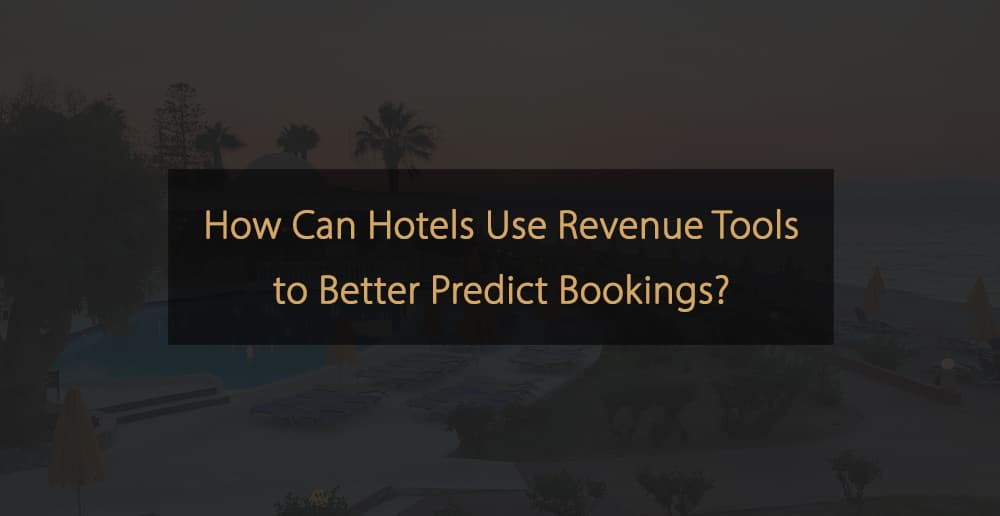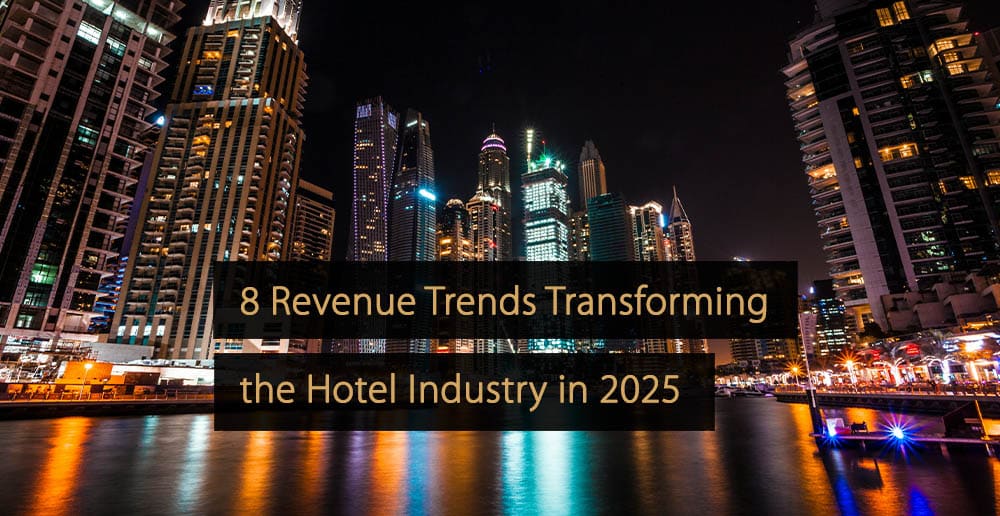Question for Our Revenue Management Expert Panel:
What are your predictions for the revenue management trends and strategies we can expect to see in 2023?
Industry Expert Panel
Our Industry Expert Panel exists out of professionals within the hospitality & travel Industry. They have comprehensive and detailed knowledge, experience in practice or management and are forward-thinking. They are answering questions about the state of the industry. They share their insights on topics like revenue management, marketing, operations, technology and discuss the latest trends.
Our Revenue Management Expert Panel
- Chaya Kowal – Director of Revenue Management, Potato Head Family
- Dermot Herlihy – Owner, Dynamic Hospitality Consulting
- Ricardo Sereno – Revenue Manager, Altis Hotels
- Pablo Torres – Director Of Sales and Marketing, Alannia Resorts
- Dr. Betsy Stringam-Bender – Professor of Hotels & Resorts, New Mexico State University
- Diego Fernández Pérez De Ponga – Director of Revenue Management, Palladium Hotel Group
- Krunah Shah – Director of Revenue Management, The Biltmore Mayfair, LXR Hotels & Resorts
- Daphne Beers – Owner, Your-Q Hospitality Academy
- Mariska van Heemskerk – Owner, Revenue Management Works
- Silvia Cantarella – Revenue Management Consultant, Revenue Acrobats
- Massimiliano Terzulli – Revenue Management Consultant, Franco Grasso Revenue Team
- Annemarie Gubanski – Founder and CEO, Taktikon
- Daniel Feitosa – Revenue Management Specialist
- Ask Our Panel a Question
- Join Our Expert Panel
“The hospitality industry has been going through a lot of changes since the pandemic. I think that these changes will continue in Revenue Management as well – as hotels shift to more automated systems, invest in proper Revenue Management tools and also start looking at Total Revenue Management / TRevPar. The availability of more RMS options and business intelligence tools will also increase in the market; maybe making it more accessible to independent hotels and smaller hotels. There might be more demand for outsourced Revenue Management from hotels that do not have the budget for hiring a Revenue Manager / investing in tools but still want to optimize their Revenue.
Properties will also pay more attention to the feedback of customers – so far we have been seeing an increase in demand for sustainability and wellness. I am lucky to work for a brand that has always cared about the planet and we can see the difference that this makes. I guess that offerings will be adapted to cater to these needs and there will be even more collaborations (internal and external) to create ancillary revenue. The focus on reputation management will become more important and will also affect pricing decisions as Revenue Managers integrate this aspect into their strategy.
Various other changes in customer behaviour will be considered for RM strategies; for example, staycations for the domestic market or remote work options and offering co-working spaces.
Of course, all of these have been existing in a hotel structure, but I think that the focus will shift and we will have to be more creative in our strategy as well. There will definitely be a change in mindset and a shift from traditional hotel management and revenue management to a more creative, flexible, and proactive approach.”
“Within the realm that I operate, there is a drive for systems and automation, sadly driven predominantly by talent acquisition, or should I say, talent retention. Overall, talking with colleagues around the globe, systems in non-chain hotels are definitely on the up, which is fantastic to see. Following the bumper year that most hotels have had in 2022, most Owners/GMs want to continue this success as best as possible and some are leading the way by setting up their RM for success with an RMS, an upgraded PMS and increased tech stacks.
A key for 2023 will be trying to sustain the domestic business that has flourished compared to normal years, linking this back to reputation management and loyalty programs. Coupling this with the regrowth in corporate in certain hotels, that rate will be a driver, but the continued reinvention and loyalty connection is strategically important to answer the guests’ questions of “why should I stay here?”, and “what makes this hotel my hotel of choice?”.
Wellness continues its growth with leisure hotels pulling it into philosophy throughout the hotel with expanded specialised F&B offerings targeting new residential business also new local business.
As bumper a year as most hotels have had, the foreboding recession will affect non-gateway cities quicker and harder like always. The impact of talent acquisition within revenue, sales and marketing this year will have a resulting effect in 2023 on flexing those segments, in particular those hotels that have significantly increased their leisure segment. Owners/GMs be prepared for a dip on this year – as the old adage goes: fail to prepare, prepare to fail.”
“I believe that the core of the Revenue Manager position will not change.
We are, and will, be people who look at lots of data and try to extract it in the best way possible to make actionable decisions with regard to pricing. In hospitality, we have been focusing on room revenue because this usually is the most profitable part of the business. In most cases, it will continue like this, as most properties will require a high level of adaptability from the Revenue Manager to these new market conditions (post-Covid with a war in Europe and with price levels going up in all kinds of items).
There is a growing simplification of our work made by RMSs, BI Solutions and other tools (Rate Shoppers, Forward data, etc.), which will allow us to have more free time to analyze and make smarter decisions. This will also allow us to focus on Total Revenue Management and Revenue Management for other areas (Parking, Sunbeds, Meeting Rooms, F&B) – but the core will still remain the same in most situations.”
“Given the current scenario, and what has been going on over the past 3 years, whatever is going to happen in 2023 is very unpredictable. That means RMs are cautious, as they don’t want to get carried away by the pent-up demand we saw in 2022, but at the same time don’t want to be too conservative either. Challenging times when all of 2023’s rates need to have already been loaded!”
“Leisure has driven much of the recovery from the pandemic. The leisure market has historically been more sensitive pricing and rate, rather than business travel. As factors such as the cost of fuel and other travel expenses increase, there is the potential for increased cancellations and softening of leisure demand. While revenge travel has spurred much of the initial rebound, increasing room rates will discourage continued leisure travel for some markets.
International travel will lag in recovery as countries and markets have varying travel restrictions and concerns related to world health and the pandemic. Revenue management will require more attention to changing patterns and fluctuating travel demand. Post-COVID travellers are not the same travellers as before. We cannot assume a return to “normal” and need to continue to monitor demand patterns and revenue closely.”
“We are seeing the ketchup effect right now. A lot of markets and countries have better numbers than in 2019 but I think these results are going to be temporary.
There is a lot of demand with a lot of savings right now. These savings will not continue, so I think in 2023 we will suffer a little bit in terms of demand. The ADR is going to be good, but the occupancy rate will go down.”
“Most of the hotels are now going towards sustainability. Properties are also going toward millennial business which has currently overtaken as a current market trend. Revenue management trends for this year would be more likely dependent on the 50% of global travellers. As far as sustainable or Go-green is concerned, the removal of single-use plastic and replacing it with green sustainable products will be the strategy for 2023.”
“Further automation and innovation. Start building up the hotel tech stack and establishing trust with artificial intelligence to respond to changes as and when they happen.
As hotels and brands are much more concentrated on purpose and vision-driven properties, with storytelling I believe it moves much more towards uniqueness and less of a comparison with others.
Creating less dependence on external parties and validation for success.”
“With the impact of Covid19 very present for all destinations, we can keep expecting changes in guest behaviour. We are expecting that the last-minute trend will continue as guests are reluctant to book in advance due to many economical reasons. From Covid to staff shortages in all sectors and countries, to the cancellation of flights, lower availability in hotels as they have no staff to run breakfast or clean rooms, to the War in Ukraine, all of this is impacting the travel behaviour of guests.
With this, it is even more important to have a good Revenue Management system in place so hotels are able to adapt their strategy quickly and spot high-demand / low-demand periods more easily.”
“I don’t think that the 2023 strategy will be so much different from 2022. This year there will probably continue to be great attention towards digital payments, payment by instalments, drive-to-direct and still curiosity towards blockchain and NFTs without any real strategy behind (personal opinion, more curiosity but less action).
Hotels will probably be more cautious than 2022 when it comes to pricing, but this will probably happen early as the winter months still have a question mark when it comes to the pandemic evolution. There is great confidence in the group and meeting segment. Group business is already planning for all of 2023 so the mix between groups and transient demand will stabilise getting close to the 2019 levels.”
“I think that, rather than innovations, we will be seeing the confirmation and consolidation of trends that were already underway prior to the pandemic. There will be an increasing adoption of cloud-based PMSs built on open APIs to allow the easy integration of third-party applications (eg: upselling software, RMSs, CRMs, chatbots etc). Then, artificial intelligence and machine learning will spread further to partially solve the problem of labour shortage (think of chatbots, robots etc.). The market segment of digital nomads and remote workers will become even more important for marketing and revenue management strategies.
I also think that open revenue management will become increasingly prevalent. In other words, revenue management will extend to commercial sectors other than the traditional ones (airlines, hotels, means of transport) which nevertheless have similar or identical characteristics: high fixed costs, low variable costs, predictable demand, perishable products and limited inventory.
These include cinemas, museums, theatres, stadiums, concerts, beach clubs, ski resorts, restaurants, gyms, spas, hairdressers, etc. There are already some realities where the principles of revenue management are being experienced in embryonic form within these sectors, each with its own peculiarities, and I think that technologies will continue to develop and will make this discipline a critical standard in these sectors as well.”
“From a Revenue Management perspective, you can see that the role of a Revenue Manager now moves over to becoming a Total Profit Manager, instead of “just” managing revenue streams coming from rooms, and will be involved in all revenue streams and the cost involved to them. One of these costs is, of course, the distribution costs and Digital Marketing, so the question of driving direct is part of their job as well. Driving direct revenue might not only be a question of decreasing distribution costs.
This has to do with the fact that loyalty programs are turning into guest recognition programs and in order to recognise the guest, the need to get direct contact with them is even more important than ever. Direct reservations actually create direct contact and can help hotels to move forward in this direction.”
“Hotels can benefit from the metaverse for Groups and Events offering opportunities to get clients who cannot be there in person at the hotel for events or even meetings. Offering solutions for these scenarios will be a must.
Packages related to disconnection (knowing the local history, nature and culture) should be more relevant.
Hotels can benefit more with early-birds and non-refundable offers, as they should be more accepted by the guests.
Loyalty programs can be leveraged by hotels offering exclusive and more customized advantages.”
Ask a Question & Join Our Expert Panel
Would you like a question to be answered by our Industry Expert Panel? Or would you like to join our community of experts and share your experience, insights, and knowledge with fellow industry professionals? Via the buttons below you can submit a question or submit a request to become part of our expert panel.
More Tips to Grow Your Business
Revfine.com is the leading knowledge platform for the hospitality and travel industry. Professionals use our insights, strategies, and actionable tips to get inspired, optimize revenue, innovate processes, and improve customer experience.Explore expert advice on management, marketing, revenue management, operations, software, and technology in our dedicated Hotel, Hospitality, and Travel & Tourism categories.




















Leave A Comment